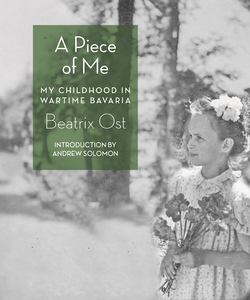Читать книгу A Piece of Me - Beatrix Ost - Страница 10
На сайте Литреса книга снята с продажи.
HEMMINGEN CASTLE
ОглавлениеOnce, my parents had lived a truly magical life. In the early years of their marriage, between the wars, they lived with their friend Baron Wilhelm Farnbühler at his castle near Stuttgart. The Baron had his own wing; my parents, with Uli and Anita, had theirs. In the great hall, in a cage, there dwelt an owl, who preferred to eat living things: rabbits and mice. His lame wing folded into a crutch, he shrieked into the night and rattled the bars.
I was born there, at Hemmingen Castle. My father was in charge of the Baron’s agricultural affairs. Wilhelm and my mother made ceramics and studied botany.
In an abandoned glass house they set up a pottery studio. Adi, in a leather apron, produced useful and useless things out of clay. Wilhelm sat at the table, creating imaginary landscapes and abstractions—blue and multicolored—on tableware and vases. He was experienced in glazing, and he knew the proper temperature of the kiln.
The three of them went hunting in the surrounding woods. They drove in an open car to the neighboring castle, brought a freshly killed deer as a present.
The Baron loved his neighbor, Countess Alix, but he could not marry her. Why not? I asked my mother. Hmmm, some people are not made for it, she said. More a child could not extract. Homosexuality was barely even thinkable then.
The idyll—which one might call happiness, since everyone involved made splendid use of the situation in which they found themselves—the episode of rural simplicity, lasted only a few short years. Then came the shock. My father and Wilhelm had to prepare themselves for the war.
My mother slipped on her felt hat, buttoned up her striped wool suit, planted a calm, dutiful expression on her face, and accompanied the two men to the train station. On the way home, at the gate, she could no longer contain her tears. As if seen through much too strong a lens, what had been a clear drawing liquefied, became a watery sketch with abstract contours, its perspective reaching no farther than the trees of the park.
Very soon after the first weeks of the war came the news of Wilhelm’s death. It was over. No more botany studies in the garden. In the greenhouse, orchids spread out air roots. A mouse family nested in the cold kiln of the potter’s shed. The sack of clay burst, eaten through by bird droppings. A storm blew out a windowpane. Rain mingled with dust. The material for an entire banquet of plates froze into lava.
With the war, the dream had collapsed. My father, who did not believe in happiness, had his confirmation.
You’ll see soon enough, you with your optimism, he’d said to my mother.
